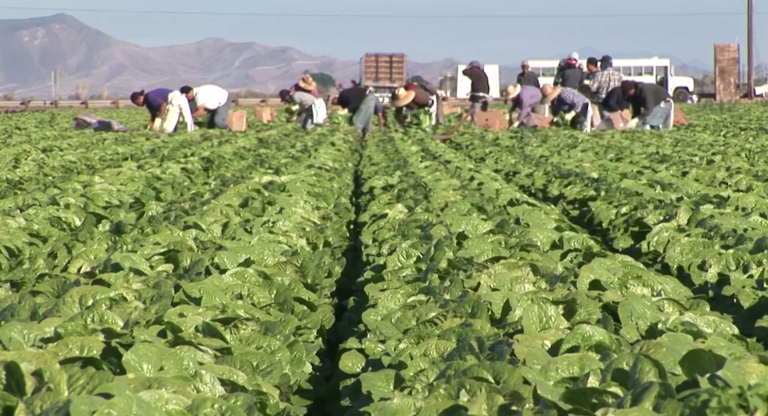President Donald Trump announced plans Thursday to provide a form of migration relief for undocumented immigrants working in U.S. agriculture and hospitality.
The proposal, reported by multiple news outlets, was discussed during a Cabinet meeting, suggesting that some individuals could voluntarily depart the country and return with legal work status if employers verify their value and contributions.
“We have to take care of our farmers, the hotels and, you know, the various places where they tend to, where they tend to need people,” Trump said.
He added that those who have already left “in an amicable way” could be given a pathway to re-enter the country legally.
“We’re going to work with them right from the beginning on, trying to get them back in legally,” Trump said, suggesting that doing so would give employers and workers alike “real incentive.”

According to the U.S. Department of Agriculture, approximately 40 percent of crop farmworkers are undocumented. In the hospitality sector, the American Immigration Council reported that over 1 million undocumented individuals made up about 7.6 percent of that industry’s workforce as of 2023. This workforce has become essential to seasonal industries that depend on consistent labor supply, especially as businesses await the release of new H-2B visas.
While the administration has pledged to ramp up enforcement and deportations, Trump also acknowledged the value of immigrant workers. “A farmer will come in with a letter concerning certain people, saying they’re great, they’re working hard. We’re going to slow it down a little bit for them,” he said. “Then we’re going to ultimately bring them back … as legal workers.”
The Joint Economic Committee reports that immigrants have helped expand the labor supply, pay nearly $580 billion a year in taxes, possess a spending power of $1.6 trillion a year, and just last year contributed close to $50 billion in personal income and consumer spending each.
This dual approach has drawn mixed reactions. The American Business Immigration Coalition warns that deporting undocumented workers could cost the U.S. economy between $30 billion and $60 billion.
At the same time, they support reform efforts that create legal pathways for essential laborers. Rebecca Shi, ABIC’s executive director, said the organization appreciates the administration’s recognition of immigrant workers, noting they are “the backbone of our economy.”
Newsweek reports that the administration has not clarified how or when the policy would be enacted but emphasized that more H-2A and H-2B visas are expected in time for the summer season.


:max_bytes(150000):strip_icc()/101651813_farm_grain_bin_silo-e2193f5114804686bbea64c89dc0da76.jpg)
:max_bytes(150000):strip_icc()/Luecke3_preview-1f450a0be346443f956da98703bdc439.jpg)
:max_bytes(150000):strip_icc()/JD_SPFHSide_r2g085323_rrd-9fe1ddc407074678b9a14b74c2fdf9e2.jpg)



:max_bytes(150000):strip_icc()/100867484_wheat-ed84884a12c94cf38d0749472f0cf1a3.jpg)
:max_bytes(150000):strip_icc()/54567219870_b2c03840fc_o-9ddb6162d60a477aa91843b1e1051542.jpg)
:max_bytes(150000):strip_icc()/Wetland-Conservation-Indiana-2-2000-8e1d2649f7604bb58dfb1b25c60e46fd.jpg)